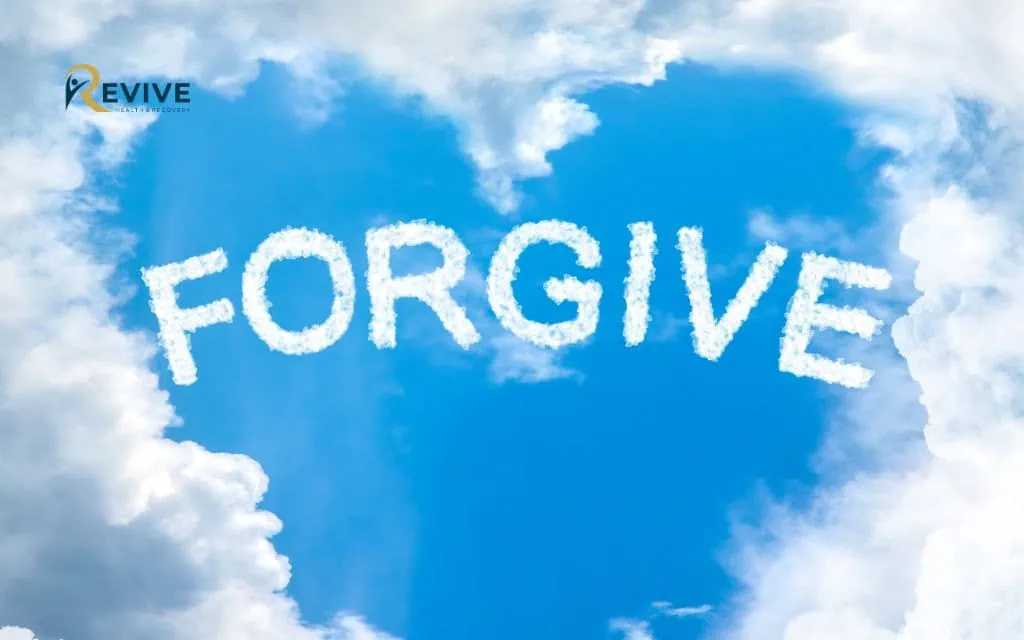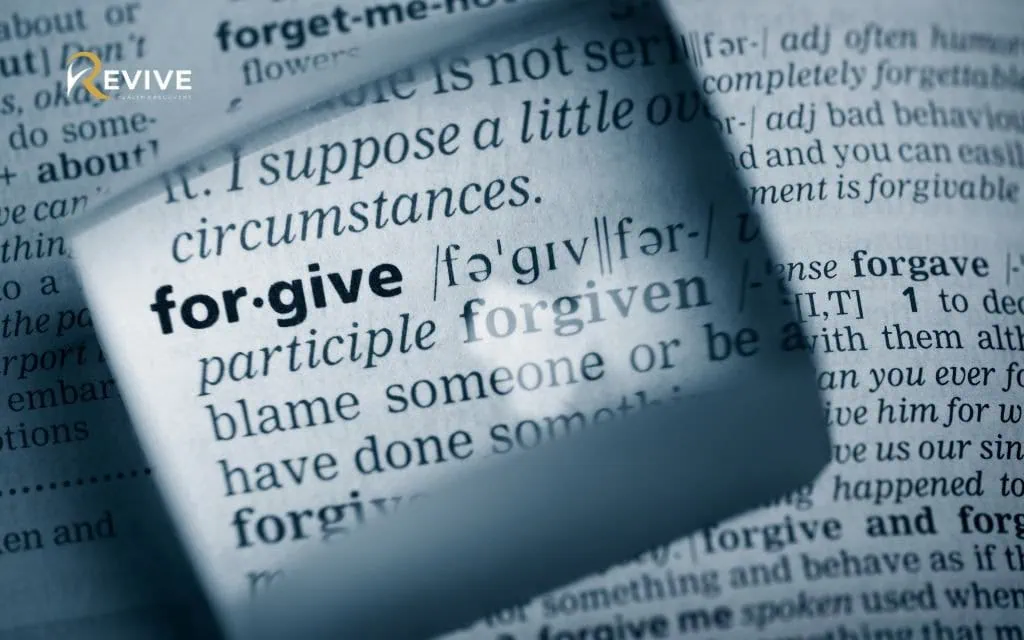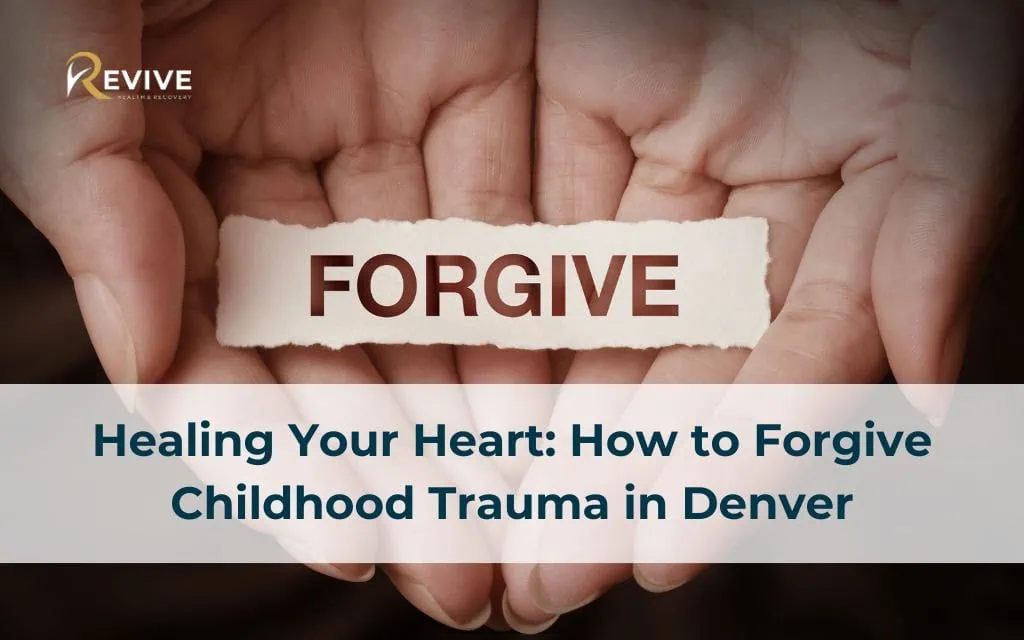Childhood trauma leaves lasting imprints on our minds, bodies, and relationships. For many adults in Colorado, particularly in Denver, the journey toward healing involves confronting difficult questions about forgiveness like ‘How to Forgive Childhood Trauma?’. Is it necessary? Is it possible? And most importantly, how do you even begin to forgive profound childhood hurt? As trauma specialists at Revive Health Recovery, we understand these questions intimately and have guided countless Denver residents through this complex healing process.
Understanding Childhood Trauma in Colorado’s Context
The Prevalence of Childhood Trauma in Colorado
Colorado’s statistics on childhood trauma are sobering. Research from the Centers for Disease Control and Prevention (CDC) shows that 55% of Colorado children have experienced at least one adverse childhood experience (ACE). In 2019, Colorado reported 9.7 victims of child maltreatment per 1,000 children—higher than the national average. These experiences don’t simply fade with time; they often require intentional healing work.
“Childhood trauma isn’t just about dramatic events,” explains our lead trauma specialist at Revive Health Recovery. “It includes emotional neglect, witnessing domestic violence, having parents with addiction issues, or experiencing chronic instability—all common experiences in Colorado communities.”
For those who may not be ready for therapy, there are alternative ways to begin healing from these experiences.
How Trauma Affects the Developing Brain
Childhood trauma significantly impacts brain development. When a child experiences overwhelming stress, their developing nervous system adapts to prioritize survival. This adaptation, while protective in the moment, often leads to difficulties with emotional regulation, trust, and relationships later in life.
Many Denver residents seeking trauma-focused therapy discover that their current challenges—anxiety, depression, relationship difficulties, or substance use – have roots in these early adaptive patterns. The good news is that neural integration techniques, combined with trauma-informed care, can help the brain heal even decades after the original trauma.
Comprehensive strategies for healing childhood trauma can further support this process.

The Complex Relationship Between Forgiveness and Healing
Is Forgiveness Necessary for Trauma Recovery?
Among Denver therapists specializing in childhood trauma therapy, there’s significant debate about whether forgiveness is necessary for healing. At Revive Health Recovery, we align with the growing movement in Colorado emphasizing “elective forgiveness”—the understanding that forgiveness is a personal choice, not a mandatory step in recovery.
“Forgiveness can be healing for many people, but it’s not the only path to recovery,” shares our trauma recovery specialist. “Some clients find other approaches more beneficial, like establishing boundaries, developing self-compassion, or focusing on post-traumatic growth without necessarily forgiving their abusers.”
What Forgiveness Actually Means (And What It Doesn’t)
When discussing how to forgive childhood trauma, it’s crucial to clarify what forgiveness actually means. True forgiveness isn’t:
- Excusing or minimizing the harm done
- Reconciling with abusive individuals
- Forgetting what happened
- Denying legitimate anger or pain
Instead, forgiveness in trauma recovery involves:
- Releasing the hold that resentment has on your life
- Freeing yourself from the emotional burden of anger
- Reclaiming your power from past experiences
- Making peace with your history without denying it
Forgiveness therapy in Colorado often involves helping clients understand this distinction. Many people resist forgiveness because they misunderstand its nature.
The Science of Forgiveness in Trauma Recovery
How Forgiveness Affects Your Brain and Body
Research on forgiveness, as compiled by the Greater Good Science Center at UC Berkeley, reveals significant physical and psychological benefits, including reduced stress hormones and improved immune function. Studies show that forgiveness can reduce stress hormones, lower blood pressure, improve immune function, and decrease symptoms of depression and anxiety.
In our Denver trauma therapy practice, we’ve observed that when clients work through forgiveness – whether forgiving others or practicing self-forgiveness – they often experience relief from physical symptoms that accompanied their emotional distress. This mind-body connection is particularly relevant to childhood trauma, which is frequently stored in both psychological memory and physical sensations.

When Forgiveness May Not Be the Right First Step
There are legitimate situations where forgiveness isn’t appropriate as an initial healing goal, as explained by Psychology Today:
- When the client is still in unsafe situations
- During active crisis or when trauma symptoms are overwhelming
- When forgiveness is being externally pressured rather than internally motivated
- Before adequate processing of trauma has occurred
In trauma-informed forgiveness therapy in Colorado, we carefully assess each client’s situation before exploring forgiveness. Sometimes, establishing safety, developing coping skills, and processing trauma must come first.
Practical Approaches to Forgiveness in Trauma Recovery
Self-Compassion as the Foundation
Before you can genuinely consider forgiving others, developing self-compassion is essential. Many trauma survivors struggle with harsh self-judgment, shame, and self-blame. Self-forgiveness therapy in Denver often begins with these foundational practices:
- Mindful awareness: Learning to observe your thoughts and feelings without judgment
- Common humanity: Recognizing that suffering and imperfection are shared human experiences
- Self-kindness: Treating yourself with the same care you would offer a good friend
These practices create the psychological safety needed to explore deeper forgiveness work. As one Revive Health Recovery client shared, “I spent decades blaming myself for what happened. Learning self-compassion broke that cycle and made me feel human again.”
Therapeutic Approaches for Trauma Forgiveness in Denver
Several evidence-based therapeutic approaches can support the forgiveness process:
- EMDR Therapy: Eye Movement Desensitization and Reprocessing (EMDR) helps process traumatic memories, reducing their emotional charge and making forgiveness more accessible. EMDR trauma therapy in Colorado has shown remarkable results for many childhood trauma survivors.
- Trauma-Focused Cognitive Behavioral Therapy (TF-CBT): This structured approach helps identify and shift unhelpful thought patterns about the trauma, creating space for more nuanced perspectives that can facilitate forgiveness.
- Internal Family Systems (IFS): This approach recognizes that we all have different “parts” or aspects of ourselves. IFS can help dialog with the parts that may be resistant to forgiveness and understand their protective functions.
- Somatic Experiencing: Since trauma lives in the body, this body-centered approach helps release physical tension and stored trauma, sometimes clearing blocks to forgiveness.

Finding Support for Your Healing Journey in Colorado
Professional Resources in Denver for Trauma Recovery
Denver offers numerous specialized resources for childhood trauma recovery:
- Specialized trauma therapists: Denver has a growing community of therapists trained specifically in childhood trauma and forgiveness approaches.
- Trauma-specific programs: Centers like Revive Health Recovery offer comprehensive programs designed specifically for childhood trauma recovery.
- Insurance and accessibility options: Many Colorado providers, including Revive Health Recovery, work with insurance and offer sliding scale options to make trauma therapy accessible. For specific cost information and insurance questions, contact us at (303) 268-4655.
Community and Group Support Options
Beyond individual therapy, Denver offers unique trauma recovery resources:
- Trauma recovery groups: Connecting with others on similar healing journeys can reduce isolation and provide validation.
- Nature-based healing: Colorado’s natural environment provides unique healing opportunities, with some Denver therapists incorporating nature into trauma recovery work.
- Online communities: For those unable to attend in-person groups, online forums specific to childhood trauma recovery can provide support.
Creating Your Personalized Path to Forgiveness
Assessing Whether Forgiveness Is Right for You
When considering how to forgive childhood trauma, reflect on these questions:
- Are you physically and emotionally safe now?
- Have you acknowledged and validated your trauma experience?
- Are you pursuing forgiveness for yourself, or to please others?
- What might forgiveness offer you at this point in your healing?
There’s no single right answer. At Revive Health Recovery, we help clients navigate these questions with compassion and without judgment.
Incremental Steps Toward Forgiveness
For those choosing to work on forgiveness, a gradual approach often works best:
- Begin with acknowledgment: Fully recognize what happened and its impact on you.
- Explore understanding: Not to excuse, but to contextualize harmful behavior within family patterns, mental illness, addiction, or other factors.
- Start small: Practice forgiveness with smaller hurts before attempting to forgive major trauma.
- Set realistic expectations: Forgiveness is usually a process, not a single event.
- Work with professional guidance: Processing childhood trauma with a specialized therapist provides safety and structure.
As you work through steps to heal from childhood emotional neglect or abuse, remember that healing isn’t linear. Progress may include both forward movement and temporary setbacks.
FAQs About Forgiving Childhood Trauma
Does forgiving my parents for childhood trauma mean I have to maintain a relationship with them?
Absolutely not. Forgiveness and contact are separate decisions. At Revive Health Recovery, we help clients distinguish between internal forgiveness work and external boundary decisions. Many clients choose forgiveness while maintaining limited or no contact with those who harmed them.
How do I know if I’m ready to work on forgiveness for my childhood trauma?
Readiness signs include emotional stability, good support systems, and having processed the trauma enough that you’re not in acute distress. Revive Health Recovery offers professional assessments to help determine if you’re ready for forgiveness work. Call us at (303) 268-4655 to schedule an evaluation.
Can I heal from childhood trauma without forgiving those who hurt me?
Yes. Many people achieve significant healing without forgiveness. At Revive Health Recovery, we offer multiple paths to healing, with forgiveness being just one option. Our client-centered approach honors whatever healing journey feels right for you.
What if I want to forgive but just can’t seem to do it?
This is completely normal. Forgiveness often comes gradually and may require professional support. Revive Health Recovery specializes in helping clients navigate complex emotions around forgiveness, offering techniques specifically designed for when forgiveness feels impossible.
How does forgiving childhood trauma help with current relationship problems?
Unresolved childhood trauma often creates patterns in adult relationships. Working through forgiveness can help break these patterns by reducing triggers and emotional reactivity. Revive Health Recovery’s trauma specialists can help you identify and transform these patterns for healthier relationships.
5 Reasons to Choose Revive Health Recovery for Your Trauma Healing Journey
1. Specialized Trauma Expertise
Revive Health Recovery stands as Denver’s leading provider of specialized therapy for childhood trauma. Our team has advanced training in multiple evidence-based trauma approaches, including EMDR, TF-CBT, IFS, and Somatic Experiencing.
2. Personalized Treatment Plans
We understand that each person’s trauma history and healing needs are unique. Our approach begins with comprehensive assessment to create a treatment plan tailored specifically to your needs, preferences, and goals—whether those include forgiveness or other healing pathways.
3. Holistic Healing Approach
We address trauma’s impact on mind, body, and relationships. Our integrative approach combines traditional psychotherapy with cutting-edge trauma techniques, mind-body practices, and relational healing to support complete recovery.
4. Compassionate, Non-Judgmental Environment
Our center provides a safe space where your experiences will be validated, your pace respected, and your choices honored. We believe in empowering clients through collaborative, respectful therapeutic relationships.
5. Denver-Based, Community-Connected Care
As a Denver-based center, we understand Colorado’s unique cultural context and have strong connections with complementary local resources to support your healing journey beyond our walls.
Conclusion
Learning how to forgive childhood trauma is not about forgetting – it’s about freeing yourself to heal, grow, and reclaim your peace. Forgiveness is a deeply personal journey that requires time, patience, and the right support system. At Revive Health Recovery, we offer Colorado Informed Emotional Care rooted in compassion, trauma awareness, and personalized guidance to help you navigate this path. You don’t have to carry the weight of your past alone. With the right tools and a trusted team by your side, emotional freedom is possible. If you’re ready to take the next step toward healing, we’re here to walk with you.
Ready to begin your healing journey? Contact Revive Health Recovery today at (303) 268-4655 or email us at contact@revivehealthrecovery.com. Our team is available 24/7 to answer your questions and help you take the first step toward healing from childhood trauma.
Address: 1427 S Federal Blvd, Denver, CO 80219
The journey to forgive childhood trauma is deeply personal, and whatever path you choose, you don’t have to walk it alone. Reach out today, and let us support you in reclaiming your life from the impact of childhood trauma.



